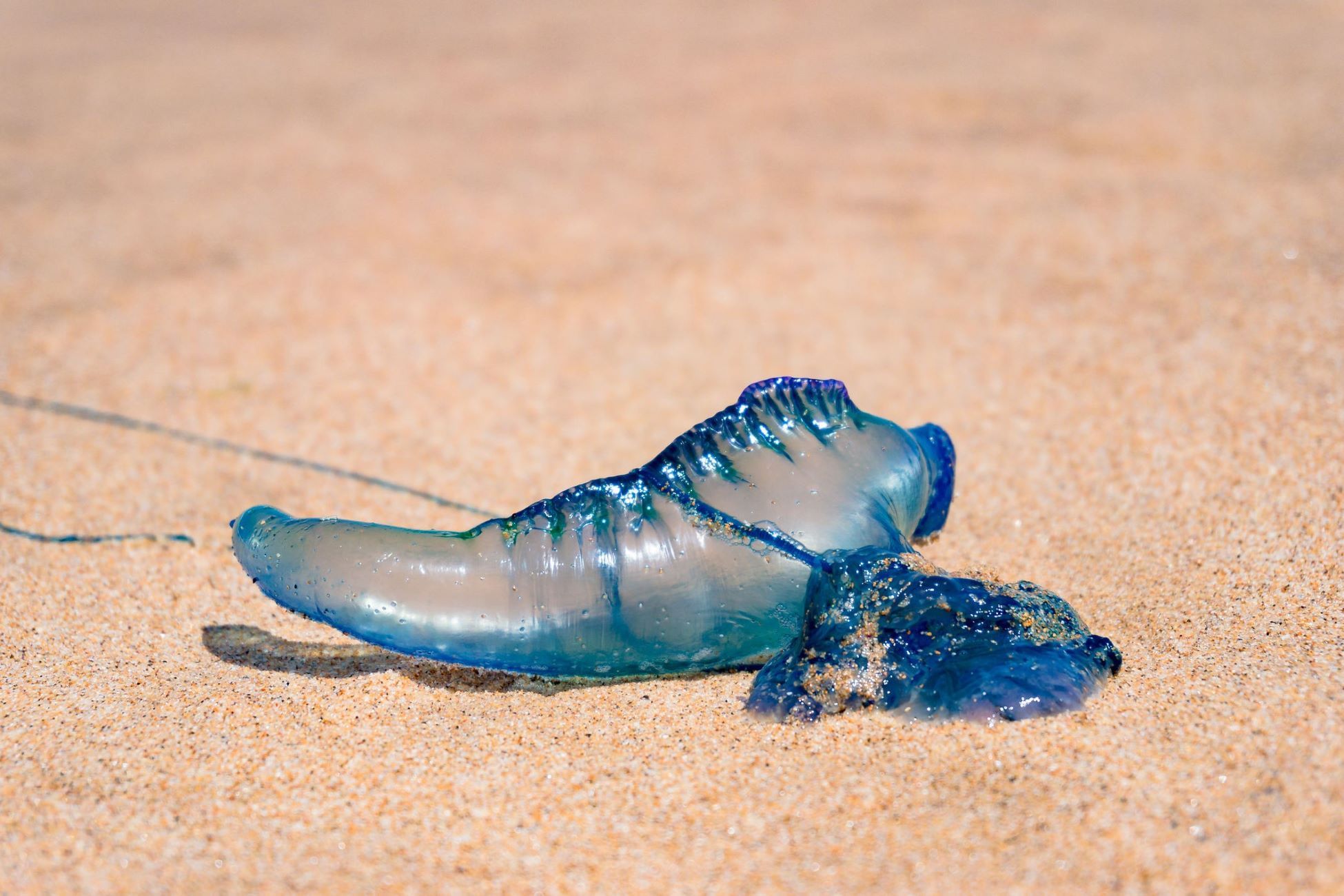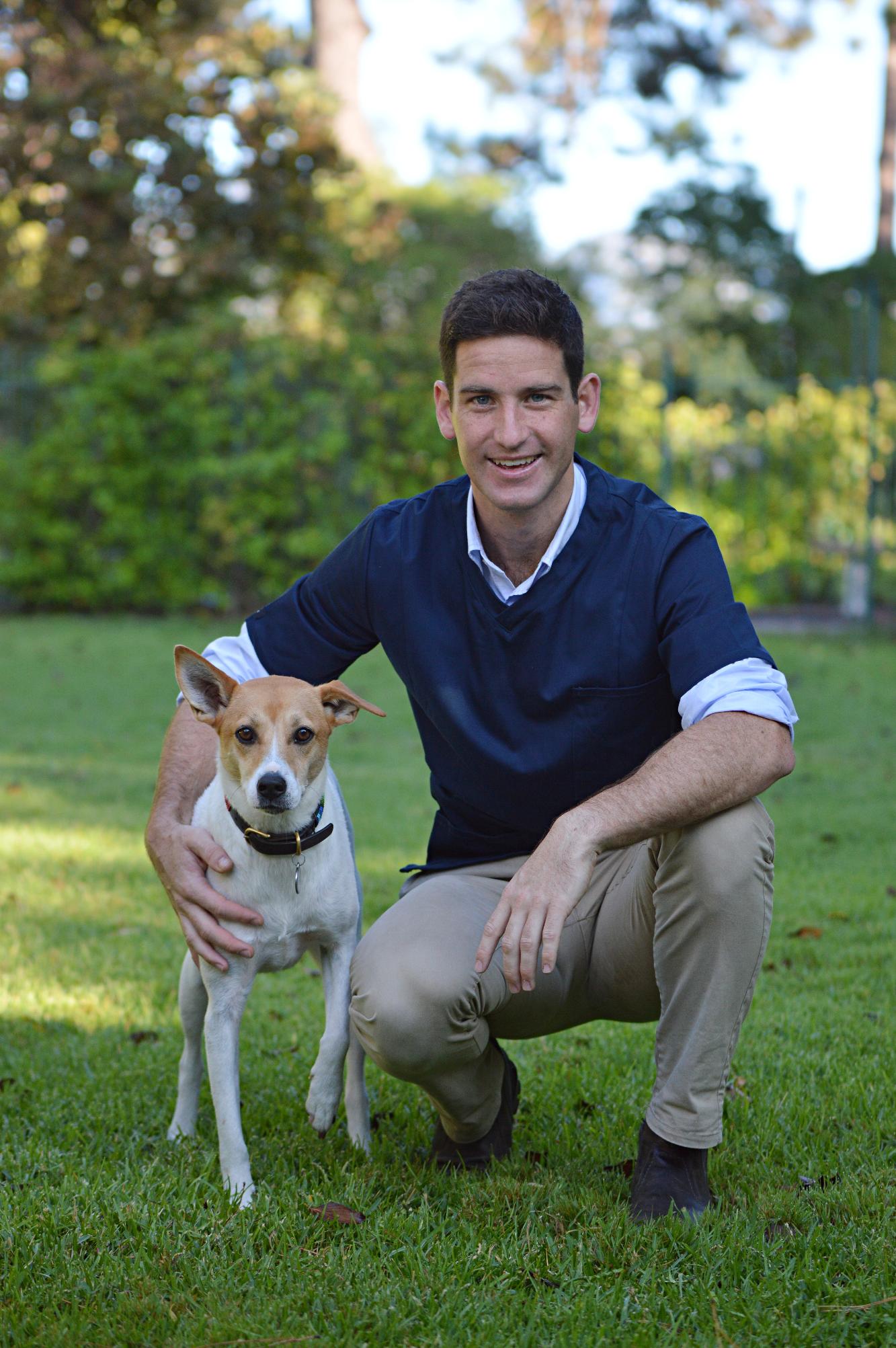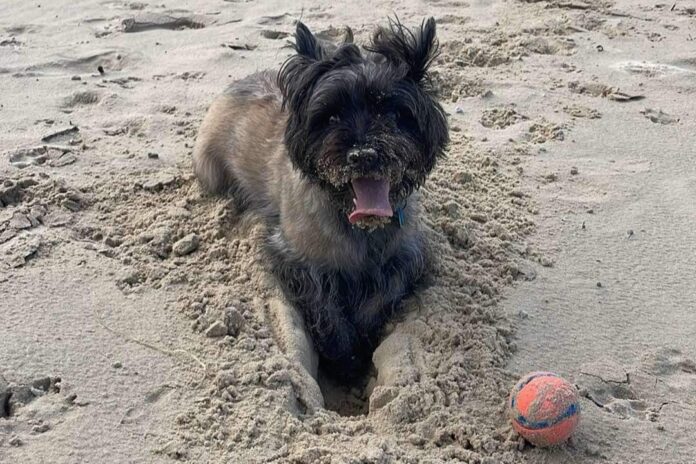At least seven dogs have wound up at Sunshine Coast vet surgeries on one day after eating bluebottles at the beach.
Dog owners have been warned to keep an eye on their pooches after northerly winds blew masses of the stingers into local beaches after days of rain.
Doctor Martin Jansen, of Coolum Veterinary Surgery, treated three dogs that had eaten bluebottles on Monday, and was aware of three that had been treated at Noosa and one at Tanawha.
Dr Jansen said anyone who believed their dog had ingested a bluebottle at the beach should immediately take it to a vet.
“Bluebottles can be quite irritating around the mouth and quite irritating around the throat, and dogs can have quite a reaction – in some cases, an anaphylactic reaction,” he said.
“Once it gets into the stomach, the gastric juices neutralise the sting.”

Dr Jansen said extreme salivation, lip licking and panting were the main symptoms of bluebottle ingestion.
Treatment usually involved painkillers and anti-nausea drugs or antihistamines if the dog showed signs of an allergic reaction, he said.
Dr Jansen said it was not uncommon for dogs to drink a lot to try and rid themselves of the irritation, and one of the dogs he treated yesterday had ingested a lot of sand.
He said not all dogs were interested in bluebottles but some found them particularly appealing.

“Sometimes it’s young dogs, because they might be a bit more inquisitive, but there’s no specific breed or type of dog that are more prone to them,” he said.
“The naughty, more inquisitive dogs are more prone to them.”
Dr Jansen said dog owners should be careful on the beach if their dog was the type of dog that liked to pick up and eat whatever it could find.
“Keep them on a leash or keep them very close to you,” he said.
That was not quite enough to stop Poppy, a determined four-year-old Cairn terrier, from downing her second bluebottle yesterday, about a year after eating her first.

Rebecca Wickes said she had been walking Poppy between Stumers Creek and Coolum Beach when the terrier wolfed down the bluebottle before she had barely seen them.
“I had her on the leash and she saw them and had it gulped down within a second and then the reaction started,” she said.
“We were on the beach and the exit was some way away. They feel that they have to get the thing off their tongue. They lick whatever they can find.
“She ended up consuming the sand and I was trying to keep her from doing that but she was too heavy for me to carry.”
After about six hours at the vet surgery, which included x-rays and treatment to help Poppy expel the sand naturally, she was allowed home.
“Poppy will be taking things easy for the next few days and then she’ll have to go and get a job to pay for the vet bills,” Ms Wickes said.





